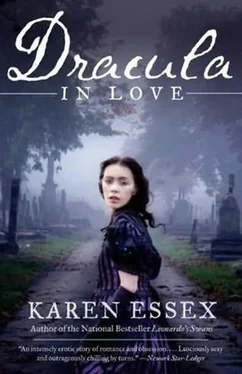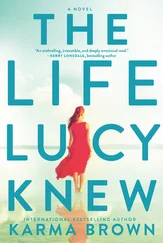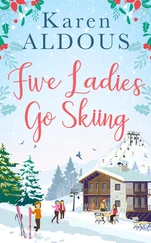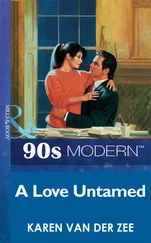Eventually he began to share authorship with her, and now she wrote stories both with him and on her own. She and Jacob were true comrades, she explained, meeting in the evenings to read the next day’s papers fresh off the presses, often “over a smoke and a beer.” Kate loved nothing more than to shock me, the teacher of etiquette and decorum, with her provocative new ways. She had tried once to include me in one of these evenings after she and Jacob had filed a lengthy story on crime against women. But I did not like Jacob’s looks, what with his fingers stained with tobacco and ink, his chronically unshaven face, and his eyes that roamed over a woman’s body without an ounce of respect.
I had been studying stenography and other office skills so that I might be useful to Jonathan in his law profession once we were married, and I had become fiendishly fast both at writing in shorthand and on the typewriter. With these skills, I had begun to help Kate, just as she had helped Jacob. A few days before the riverbank incident, I had gone with her to investigate some cheap tenements slapped up in the narrow, grimy streets of Bethnal Green and Whitechapel to accommodate factory workers.
Together we went into rooms of filth and misery, with no running water, where mothers and fathers were packed with eight and ten children in one room. Laundry, washed in the sewage-laden water of the Thames, hung everywhere, and stagnant privies sat in the yards. I have always been gifted, or cursed, with a keen olfactory sense, and I thought I would faint in the summer’s miasma of human waste, diapers, cheap ham-bone stew, and perspiration. The wives we met were workers themselves-knitters, lace makers, seamstresses, or laundresses-still young but wrinkled and hardened, with crippled fingers like crabs’ legs and callused skin. The women complained that no matter how hard they and their husbands worked, it was near impossible to meet the exorbitant rents.
Afterward, Kate worked our way into the landlords’ fine offices using the feminine charms learned at Miss Hadley’s. Eventually, however, her agenda emerged. “How do you expect these people to sustain their families if the rent consumes ninety percent of their salaries? You are enslaving them with low wages and high rents. Have you no sense of Christian charity?”
We had left the interview in a cloud of Kate’s indignation, but I was beaming. “You gave those men a verbal lashing,” I said. “I am proud of you.”
Kate’s eyes sparkled. “I love being at the center of things, not just observing on the periphery. I suspect that you love it too, though you will never admit it.” Always dramatic, Kate selected the occasional word to single out for emphasis.
“Watching you work is like attending the theater,” I said. “I observe, but I do not see the need to participate.” And then I wondered if what I said was true.
Today, I walked through heavy summer rain to Kate’s rooms off Fleet Street, passing newsboys hawking evening editions of the papers, their enthusiasm undiminished by the weather, and other street vendors selling their goods. She lived, to her parents’ dismay, on the third floor of an eighteenth-century building that hadn’t been renovated in fifty years and thus needed repairs. Her door was open, spilling soft yellow gaslight into the hallway, and I poked my head in. Sprigs of her dark blond hair escaped the haphazard bun at the nape of her neck, kept in place with a pencil. She held a burning matchstick in her bony fingers with which she had just lit a cigarette. She blew out the flame and waved the matchstick at me as if it were a magic wand, a big smile slashing her freckled face.
She hugged me with her long arms so that I could feel her wide shoulders begin to wrap round me. Tall and wiry, Kate had sharp-cut cheekbones and even sharper blue eyes. She was without a corset today, in keeping with her feminist principles.
“My editor is allowing me a full three thousand words for an article on the state of girls’ education in Britain, the longest story of my career. Only you, Mina, have the organizational skills to help me sort through all this data,” she said, gesturing to the pamphlets, magazines, and newspapers scattered about the room.
“You’d better make me some tea,” I said, bracing myself for the task.
“Already going,” she said, pointing to her steaming kettle.
“Lovely rug,” I said. I had never seen the bright teal hooked rug, with its swirling abstract pattern of green, red, and yellow. Kate had made the room seem larger by hanging the bellows above the fireplace as a sort of sculptural relief. Three new wicker chairs sat around a wooden table with turned legs.
“Present from Father. He’s venturing into machine-made rugs. He claims that the modern woman has a mania for home décor.”
I surveyed the piles of papers. “What is your angle on the story?” I had assimilated some of Kate’s journalistic jargon and had begun to freely use it.
“The task is to show the growing breadth of educational opportunities available to girls and the necessity for them to take advantage of them.”
“Girls are already taking advantage,” I said slyly. “Miss Hadley’s School has no vacancies.”
Kate gave me one of her sideways looks. “Did you know that the University of London is now offering all degrees to women, including one in medicine? Imagine someday being tended to by a lady doctor!”
Secretly, I used to fantasize about studying at a university, and I did feel envy that other girls were being given such opportunities.
She picked up a notebook and waved its pages at me. “Wait until you read my notes. Soon all children under the age of thirteen, girls included, will be mandated by law to attend schools-schools that give boys and girls the same sort of education in math, history, and the sciences. When that happens, you will have to say au revoir to Miss Hadley, in whatever language she considers a sign of good breeding. She will have to adapt or close.” Kate blew a cloud of smoke into the air as if to emphasize her point.
“That will be a very sorry day for girls who want to become ladies,” I said. “In any case, I think your predictions are wrong. The queen herself is against this sort of thing.”
“It does not matter what an old woman thinks. Laws and people’s minds are changing very quickly. Once we have the right to vote, things will change even faster.”
I took an issue of The Woman’s World from my bag and handed it to Kate, who had introduced me to the magazine. “That is what Mrs. Fawcett claims in her article on women’s suffrage,” I said. Kate and I shared copies of the magazine, which was published for “women of influence and position,” and edited by Mr. Oscar Wilde. While I merely read the contents, Kate was trying feverishly to place an article within its pages.
“It’s a very good essay, isn’t it?” Kate said. “I wish I had written it.”
“I found myself even more absorbed in the piece about weddings,” I said. “After all, it won’t be long now before I am Mrs. Harker.”
Kate stubbed out her cigarette on a dainty porcelain saucer. “To be serious, Mina, you know that you have a way with words on the page. You should consider becoming a journalist yourself.” Before I could object, she continued. “Mina, this is our time . I love you, my friend, and I see your gifts. Do not waste these opportunities never before given to those of our sex.”
Her words surprised me. I was in awe of Kate’s abilities but never dreamt that I possessed her talents. “Jonathan would never have it,” I said.
“Then I should never have Jonathan!” Kate shook her head in little paroxysms as if the very thought of capitulating to a man’s will would send her to the madhouse. Then she softened. “Oh, I know, he’s handsome and intelligent and has a bright future, and you love him and he adores you. But does one really need a husband, lord, and master?” She looked at me with the same mischievous smile that I recognized from our adolescent days. “I think that the modern woman should only take lovers.”
Читать дальше












